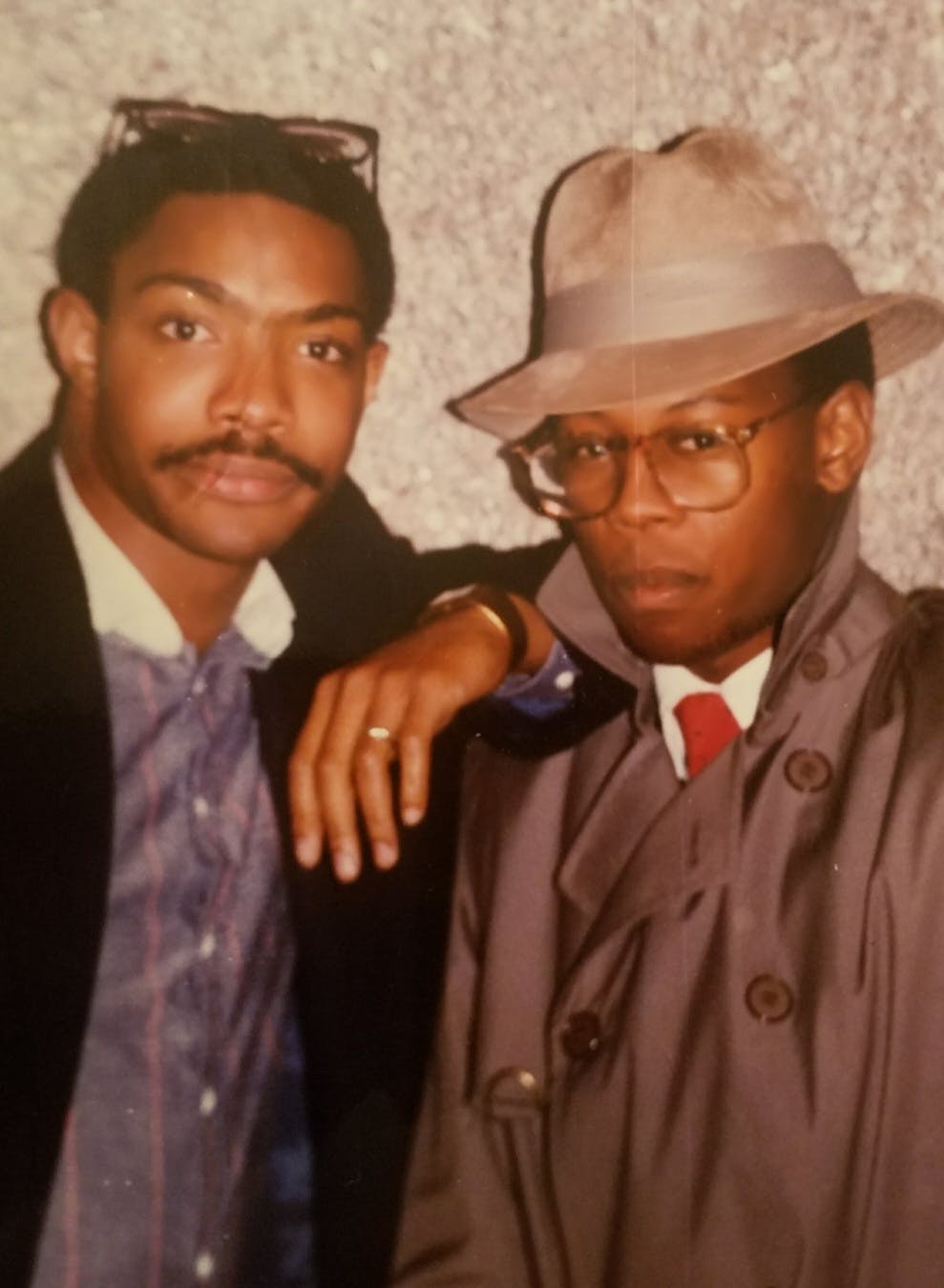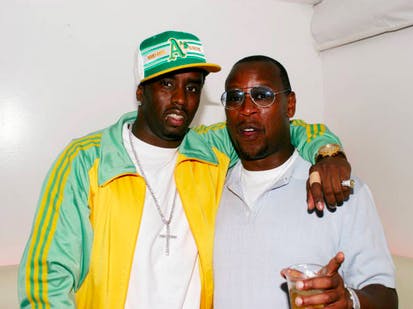features
The Story Of Andre Harrell And Uptown Records
The Story Of Andre Harrell And Uptown Records
Published Wed, November 16, 2022 at 12:00 PM EST
Andre Harrell has worn many hats in the music business; including executive producer, A&R and CEO. What many AREN'T familiar with is that his career began as one of recorded rap's early emcees.


l-r Alonzo Brown, Andre Harrell photo credit: Irvin Pantin

We had some cornball names at first: 'Lone Ranger & Tonto,' 'Batman & Robin,' 'Dre Ski and Lonnie B.' But we settled on 'Jeckyll & Hyde.' Andre wanted to be Dr. Jeckyll—which was good because I wanted to be Mr. Hyde. More words rhyme with 'Hyde.'"
- Alonzo "Mr. Hyde" Brown

Andre worked at a radio station, WINS selling air time to different business in New York and I was a runner at the American Stock Exchange. We both had to wear suits to our jobs, but it all comes down to aspiration."
- Alonzo "Mr. Hyde" Brown


Andre Harrell (standing) and Russell Simmons at Rush Productions

R&B was damned-near getting to be jazz. It was just as fake as Black rock ’n’ roll, and just as noncommercial as Black blues. Andre changed the face of R&B—he made it pop.”
- Russell Simmons (Vanity Fair interview, 1993)

And that is the idea behind Uptown. It’s a lifestyle
- Andre Harrell


Andre Harrell died of heart failure on May 7, 2020 at 59 years of age.








